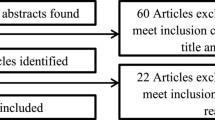Abstract
Integrated care is geared toward enhancing usual care and decision-making for common combinations of medical and mental health conditions, including the behavioral health and behavioral change aspects. Yet even with comprehensive and well-integrated care for health conditions and well-coordinated teamwork in place, some patients do not engage or respond to care in the way clinicians would like or predict. This troubles patients and clinicians alike and may be chalked up informally to things like medical complexity (multiple co-existing conditions), mental health conditions (that complicate care), or simply the case being considered complex or difficult. It also raises the question of how to address person-specific factors that interfere with care of whatever conditions the patient may have, and invites behavioral health clinicians in medical settings to look beyond care of conditions to the care of persons, and to look beyond disease-specific care management protocols to master generic practices of care management across whatever conditions the person may have. This person-centered emphasis is intrinsic to the concept of the “patient-centered medical home” which has burst into animated discussion and demonstration among providers, health plans, government plans, employer purchasers, and professional associations across public and private entities. This represents an opportunity for collaborative care clinicians to help shape the national state of the art in medical home and includes a range of person-oriented (rather than disease-oriented) practices for care management, including working systematically with complex patients and difficult patient–clinician relationships.
Similar content being viewed by others
References
AAFP/TransforMED. (2008). Medical Home Model demonstration and components. www.transformed.com.
Bartels, S. J. (2004). Caring for the whole person: Integrated health care for older adults with severe mental illness and medical co-morbidity. Journal of the American Geriatrics Society, 52, S249–S257.
Bodenheimer, T., Wagner, E., & Grumbach, K. (2002). Improving primary care for patients with chronic illness. Journal of the American Medical Association, 288, 1775–1779.
CMS—Centers for Medicare and Medicaid Services. (2008). Medicare Medical Home demonstration design and qualifying criteria. Princeton, NJ: Mathematica Policy Research Inc.
de Jonge, P., Huyse, F., & Stiefel, F. (2006). Case and care complexity in the medically ill. Integrated care for the complex medically ill. Medical Clinics of North America (Vol. 90, issue 4). Philadelphia: Elsevier.
Doherty, W. J., (1995). The why’s and levels of collaborative family healthcare. Family Systems Medicine, 13, 275–281.
Doherty, W. J., McDaniel, S. H., & Baird, M. A. (1996). Five levels of primary care/behavioral healthcare collaboration. Behavioral Healthcare Tomorrow, 5, 25–27.
Doherty, W. J., & Mendenhall, T. J. (2006). Citizen health care: A model for engaging patients, families, and communities as co-producers of health care. Families, Systems and Health, 24, 251–263.
Hegel, M. T., Imming, J., Cyr-Provost, M., Hitchcock-Noel, P., Areán, P. A., & Unutzer, J. (2002). Role of allied behavioral health professionals in a collaborative stepped care treatment model for depression in primary care: Project IMPACT. Families, Systems, and Health, 20, 265–277.
ICSI—Institute for Clinical Systems Improvement. (2009). DIAMOND: Depression improvement across Minnesota, offering a new direction. Summary and white paper available at www.icsi.org/health_care_redesign_/diamond_35953/.
IHI—Institute for Healthcare Improvement. (2007). The triple aim. Boston, MA. www.ihi.org/IHI/Programs/StrategicInitiatives/TripleAim.htm.
Joint Principles of the Patient-Centered Medical Home. (2007). AAFP, AAP, ACP, AOA. www.medicalhomeinfo.org/Joint%20Statement.pdf.
Mauer, B. (2008, draft). Behavioral health/primary care integration and the person-centered healthcare home. Washington, DC: National Council for Community Behavioral Healthcare.
National Committee for Quality Assurance. (2008). Standards and guidelines for physician practice connections ® —Patient-Centered Medical Home (PPC-PCMH CMS Version). Washington DC: National Committee for Quality Assurance (NCQA).
Patient-Centered Primary Care Collaborative. (2008). The patient-centered medical home—a purchaser guide: Understanding the model and taking action. Washington, DC: Patient-Centered Primary Care Collaborative. www.pcpcc.net.
Patterson, J., Peek, C. J., Bischoff, R., Heinrich, R., & Scherger, J. (2002). Mental health professionals in medical settings: A primer. New York: W.W. Norton & Co.
Peek, C., Baird, M., & Coleman, E. (2008). An orientation to complexity assessment. Internally published training manual. Department of Family Medicine and Community Health, University of Minnesota Medical School, Minneapolis, MN.
Peek, C., & Heinrich, R. (1995). Building a collaborative healthcare organization: From idea to invention to innovation. Family Systems Medicine, 13, 327–342.
Peek, C., & ICSI—The Institute for Clinical Systems Improvement. (2008). Report on the current state of the art in health care home. Prepared for the Minnesota Department of Health and Human Services. Available at: www.icsi.org/health_care_redesign_/health_care_home_/ and at www.health.state.mn.us/healthreform/homes/documents.html.
Rosenthal, T. (2008). The medical home: Growing evidence to support a new approach to primary care. Journal of the American Board of Family Medicine, 21, 427–440.
Saur, C. D., Harpole, L. H., Steffens, D. C., Fulcher, C. D., Porterfield, Y., Haverkamp, R., et al. (2002). Treating depression in primary care: An innovative role for mental health nurses. Journal of the American Psychiatric Nurses Association, 8, 159–167.
Stiefel, F., Huyse, F., Wollner, W., Slaets, J., Lyons, J., Latour, C., et al. (2006). Operationalizing integrated care on a clinical level: The INTERMED project. Integrated Care for the Complex Medically Ill. Medical Clinics of North America (Vol. 90, issue 4). Philadelphia: Elsevier.
Unutzer, J., Katon, W. J., Callahan, C. M., Williams, J. W., Hunkeler, E., Harpole, L., et al. (2002). Collaborative care management of late-life depression in the primary care setting: A randomized controlled trial. Journal of the American Medical Association, 288, 2836–2845.
Vogeli, C., Shields, A., Lee, T., Gibson, T., Marder, W., Weiss, K., et al. (2007). Multiple chronic conditions: Prevalence, health consequences, and implications for quality, care management, and costs. Journal of General Internal Medicine, 22, 391–395.
Wagner, E., Austin, T., & Von Korff, M. (1996). Organizing care for patients with chronic illness. Milbank Quarterly, 74, 511–542.
Weiss, K. (2007). Managing complexity in chronic care: An overview of the VA State-of-the-Art Conference. Journal of General Internal Medicine, 22, 374–378.
Author information
Authors and Affiliations
Corresponding author
Rights and permissions
About this article
Cite this article
Peek, C.J. Integrating Care for Persons, Not Only Diseases. J Clin Psychol Med Settings 16, 13–20 (2009). https://doi.org/10.1007/s10880-009-9154-y
Received:
Accepted:
Published:
Issue Date:
DOI: https://doi.org/10.1007/s10880-009-9154-y




